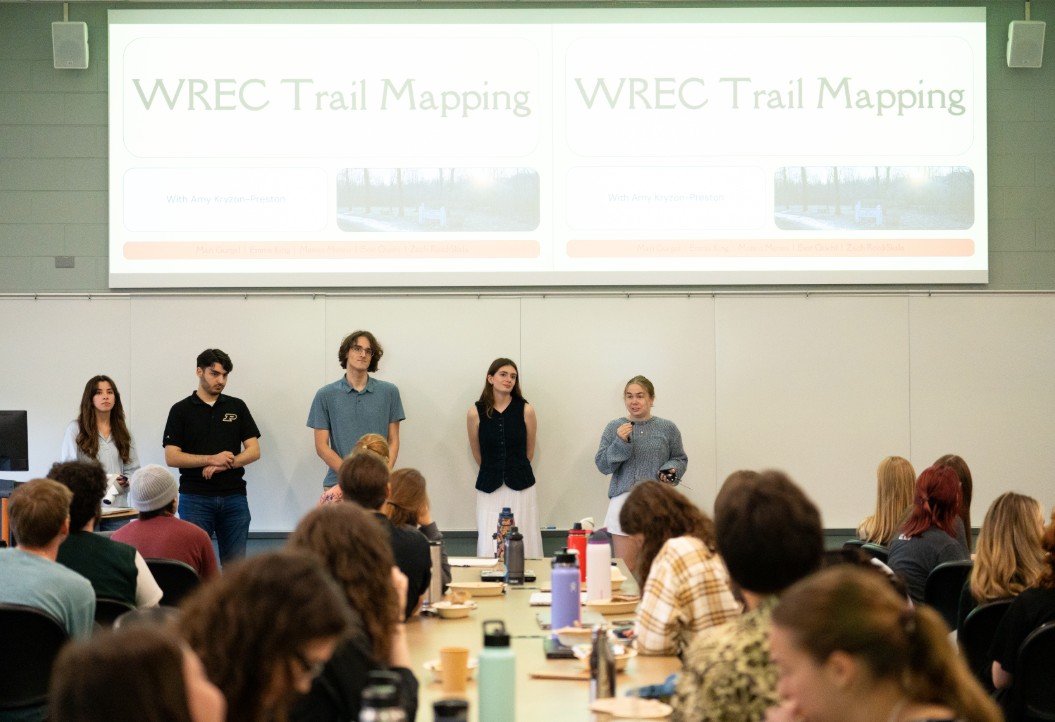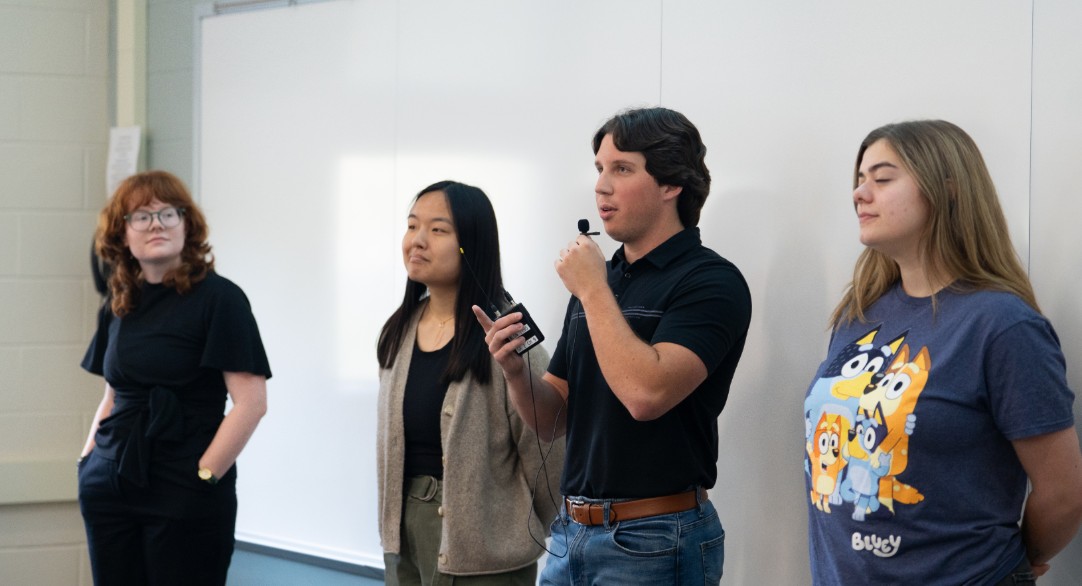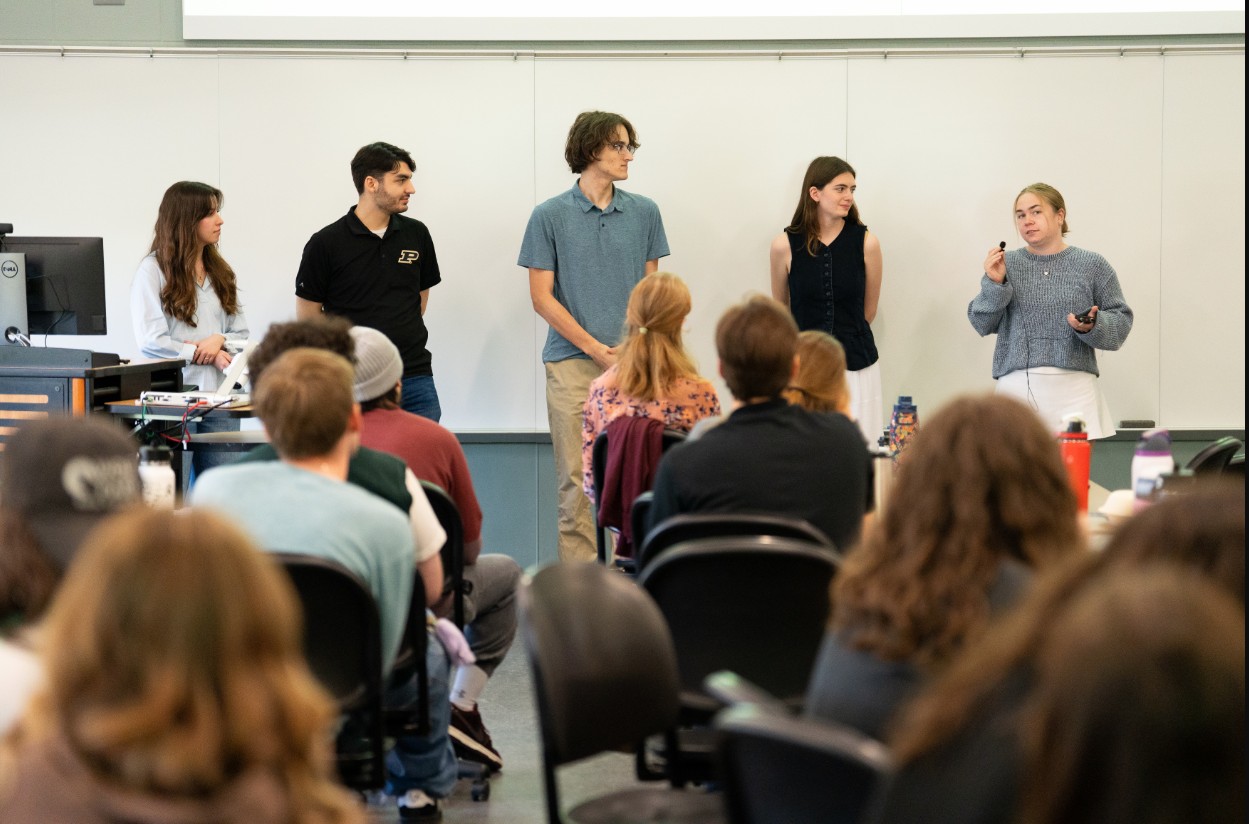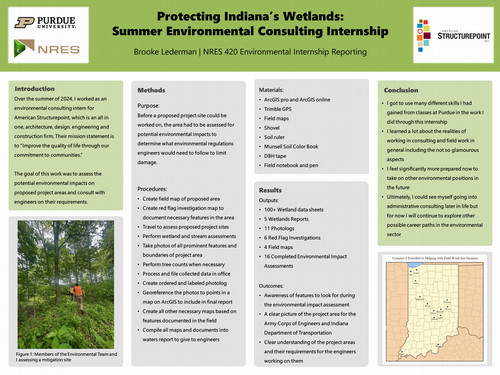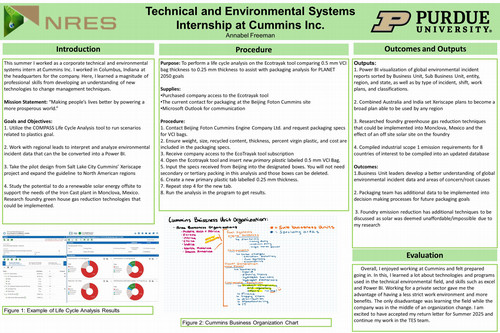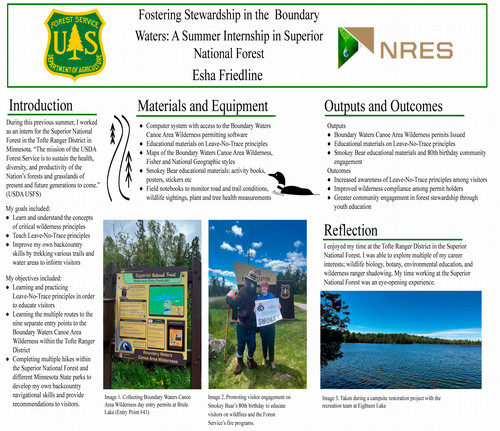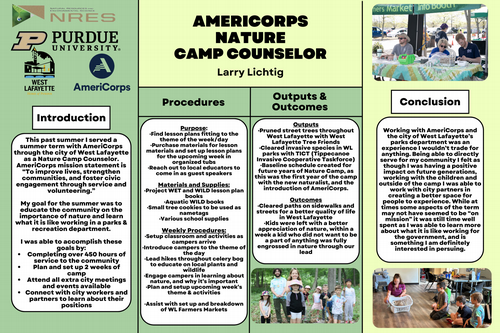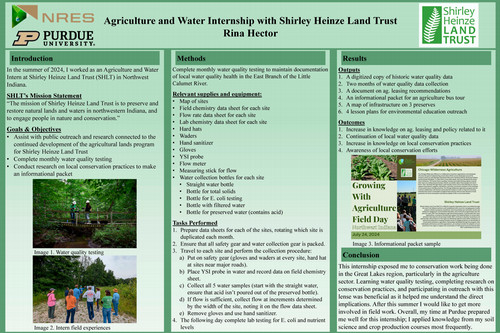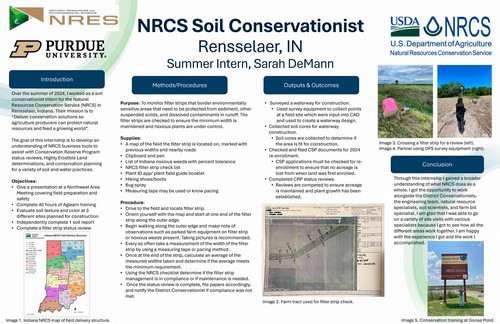NRES Course highlights
Discover the wide range of classes NRES students take at Purdue University. Our program offers a dynamic curriculum designed to equip students with the knowledge and skills needed for success in Natural Resources and Environmental Science. Explore some of the courses that shape the NRES experience below.
Credits: 0.5
Course Description: This course provides an introduction to the Natural Resources and Environmental Science program. Topics include, but are not limited to undergraduate plans of study, overview of NRES concentrations and courses, internships, student organizations, career opportunities, tours of research labs, academic policies, time management and study skills, scholarships, and student services. The course meets during weeks 1-8, which is the first half of the fall semester. After one of the first classes, students will partake in Nature Night, a dinner where they will meet their NRES Ambassador mentor.
Semester(s) Offered: Fall
Typically Taken: Fall of Freshman Year

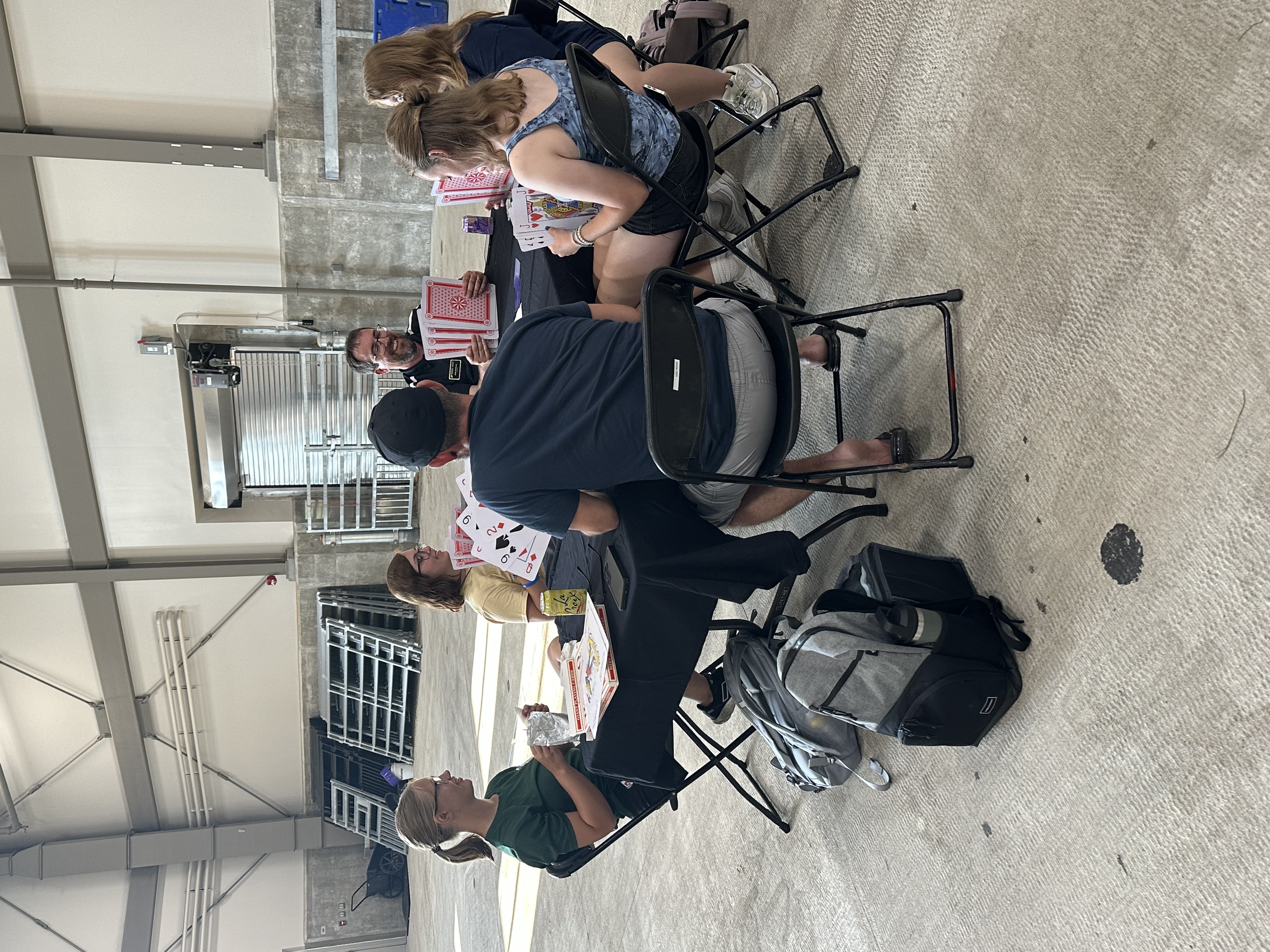
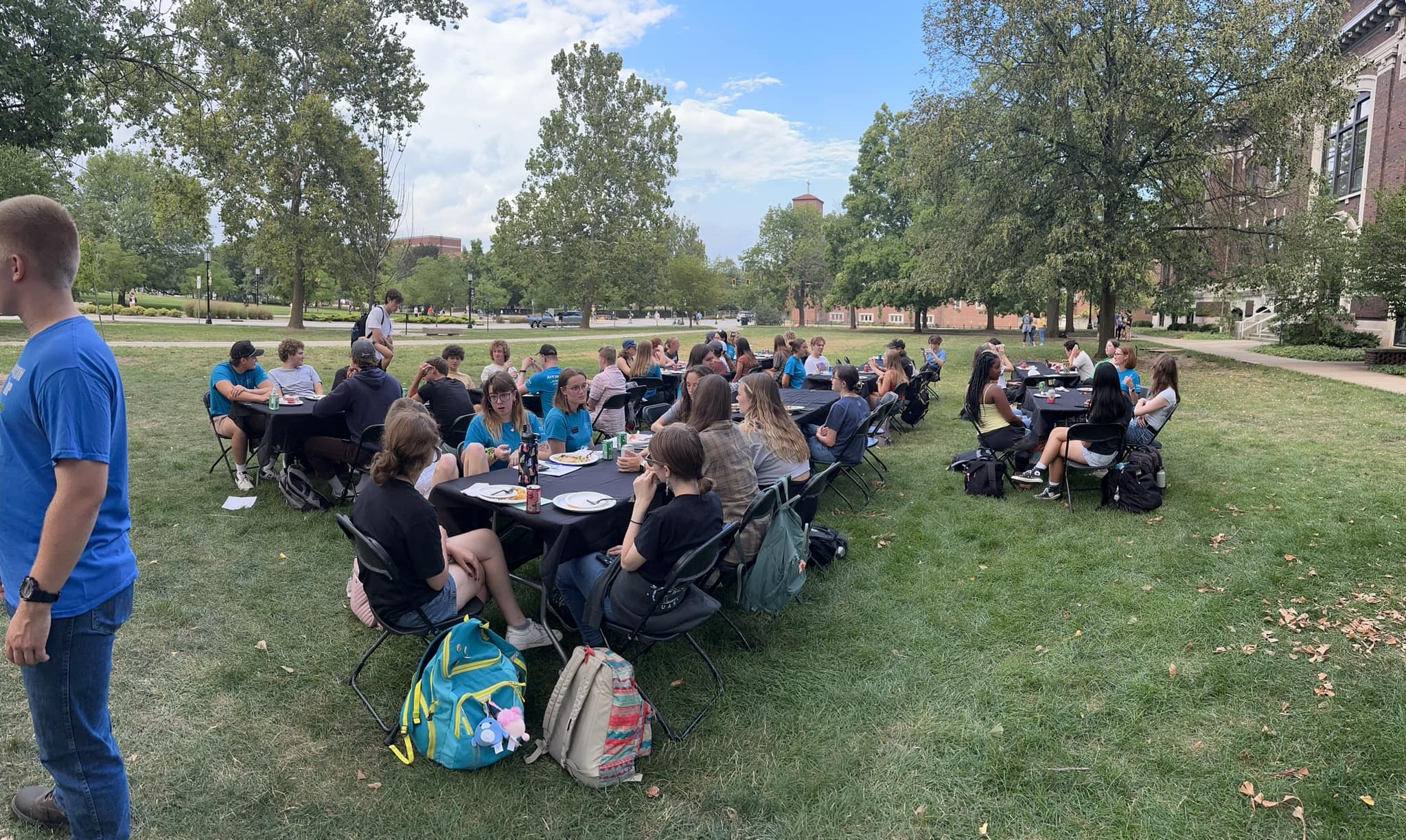
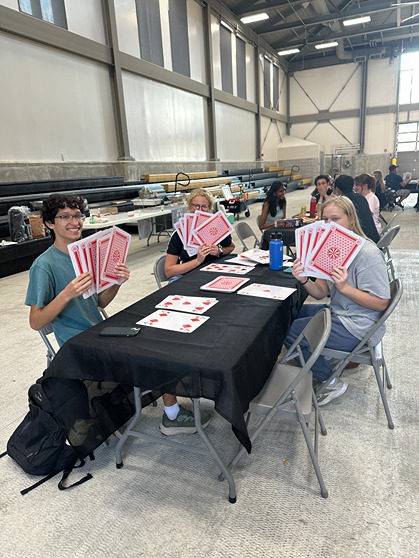
Credits: 1
Course Description: This course offers an introduction to general developments and practices in the environmental arena. A presentation of environmental careers and aspects of those careers that may affect job satisfaction and commitment is the main focus of the course. Included is an overview of coursework that benefits particular careers. The course is designed to introduce students to the specialized environmental areas in which they may choose to work. Alumni from the program come to give guest presentations and provide real-world advice with our sophomores.
Semester(s) Offered: Fall
Typically Taken: Fall of Sophomore Year
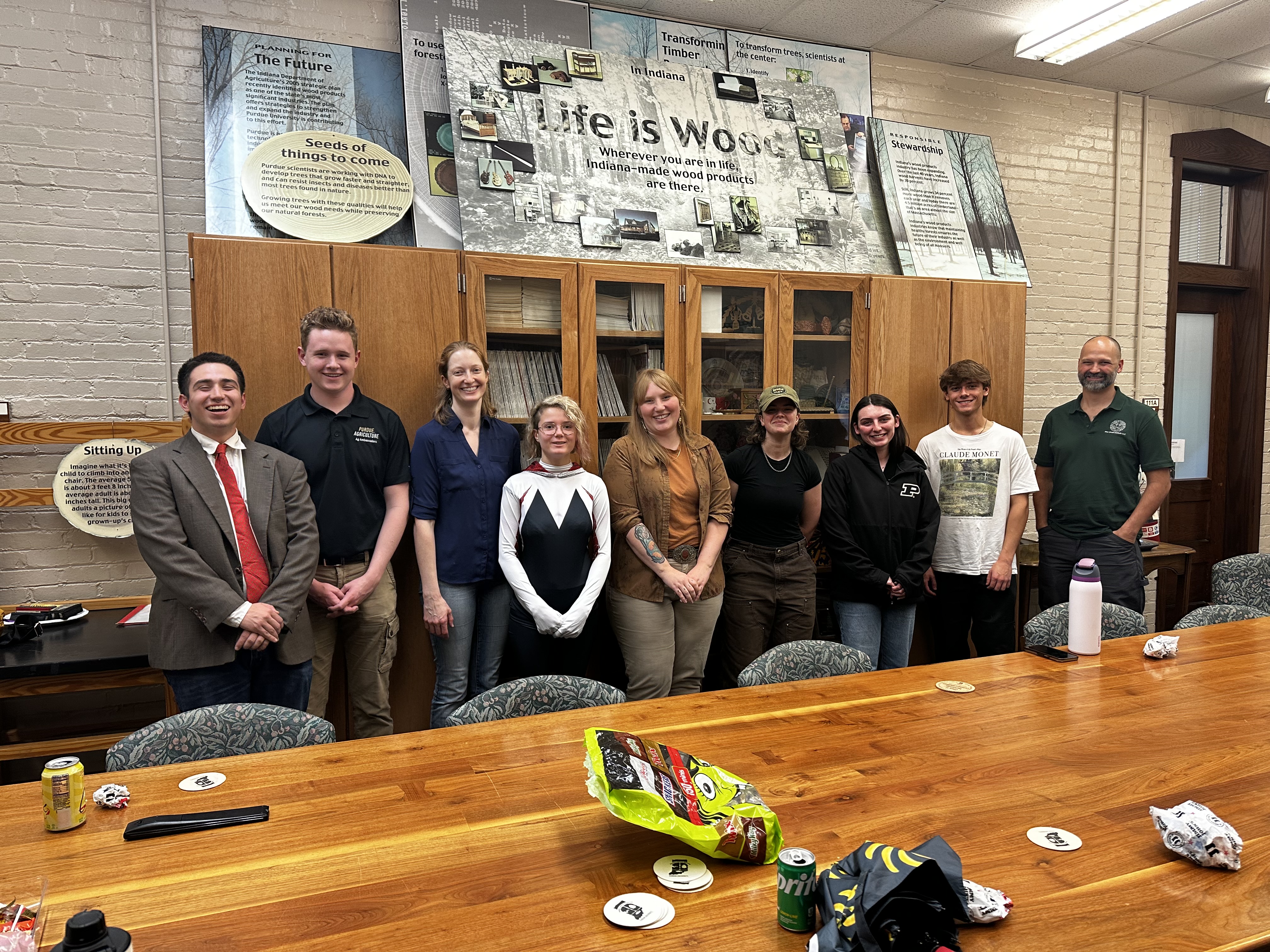
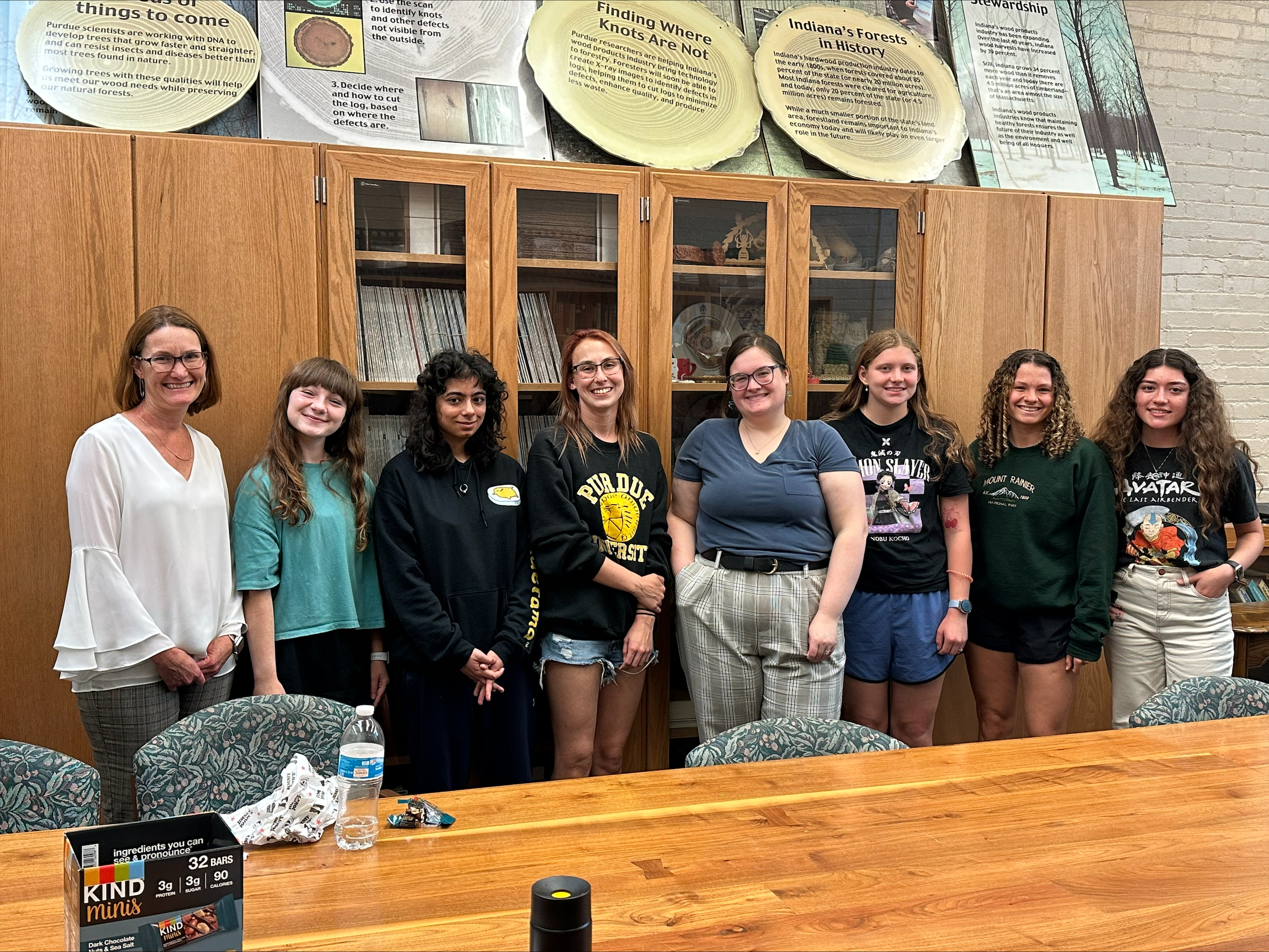
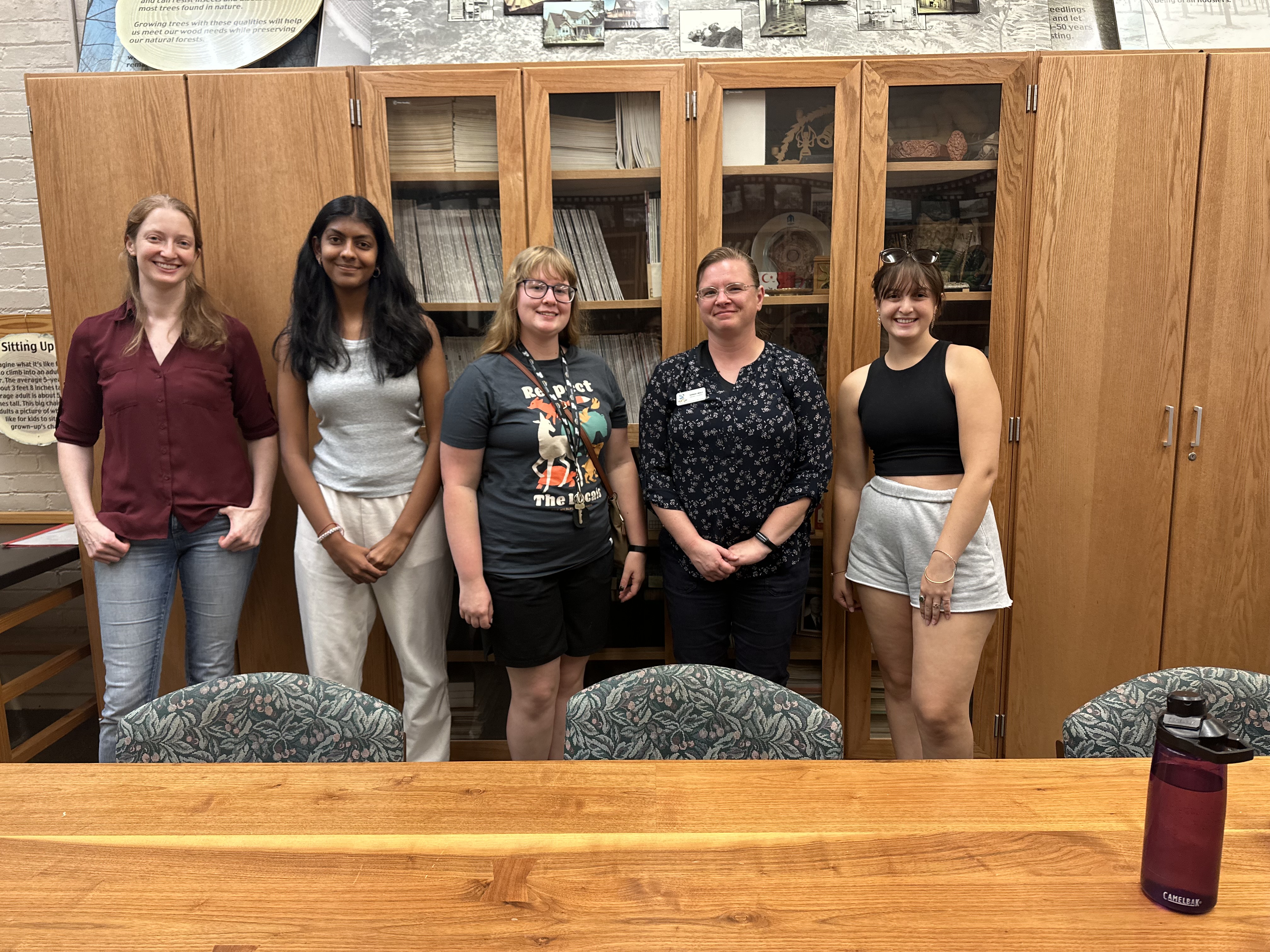
Credits: 1
Course Description: This laboratory course is designed to provide hands-on examples of physical, chemical and biological hydrological processes. Students will develop a working knowledge of the methods and instrumentation used in evaluating hydrologic processes such as soil moisture mapping, river discharge, and snow surveys. Students will go to nearby locations such as the Martell Forest and the Celery Bog to learn about stream geomorphology and wetland delineation.
Typically Taken: Spring of Sophomore or Junior Year
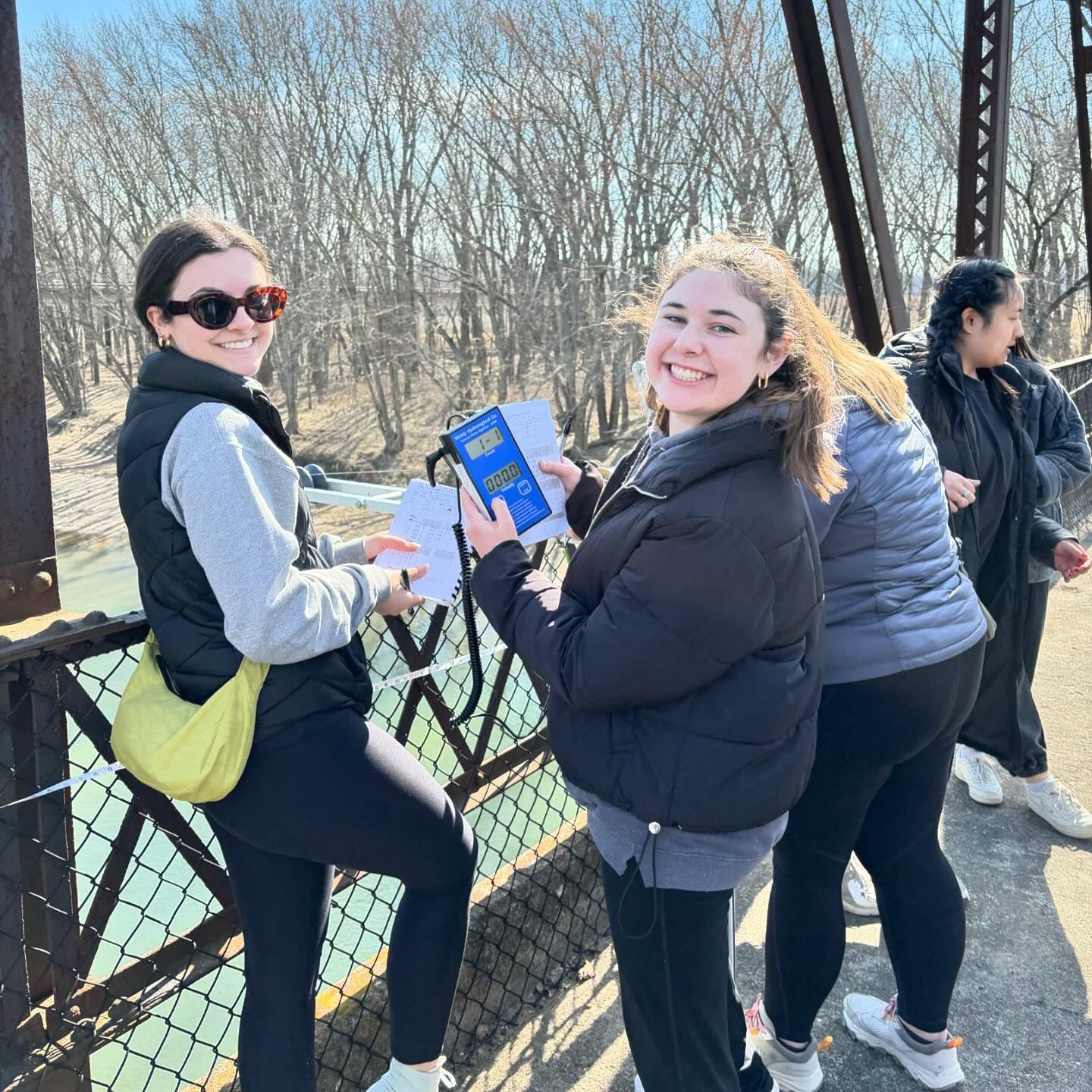
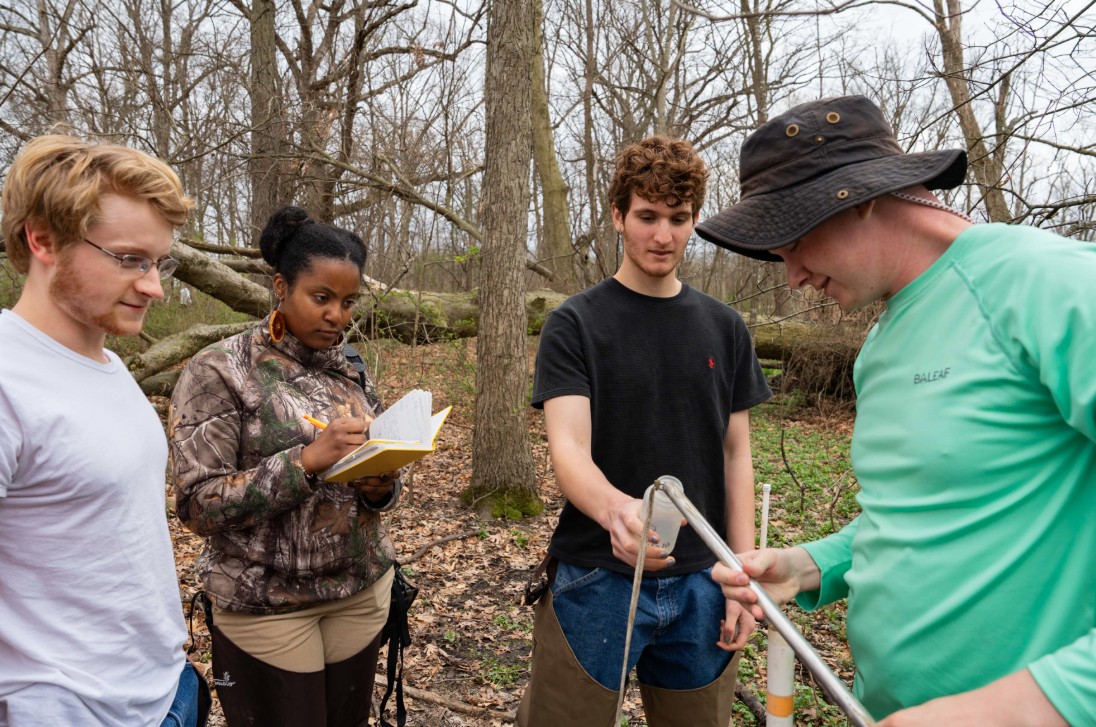
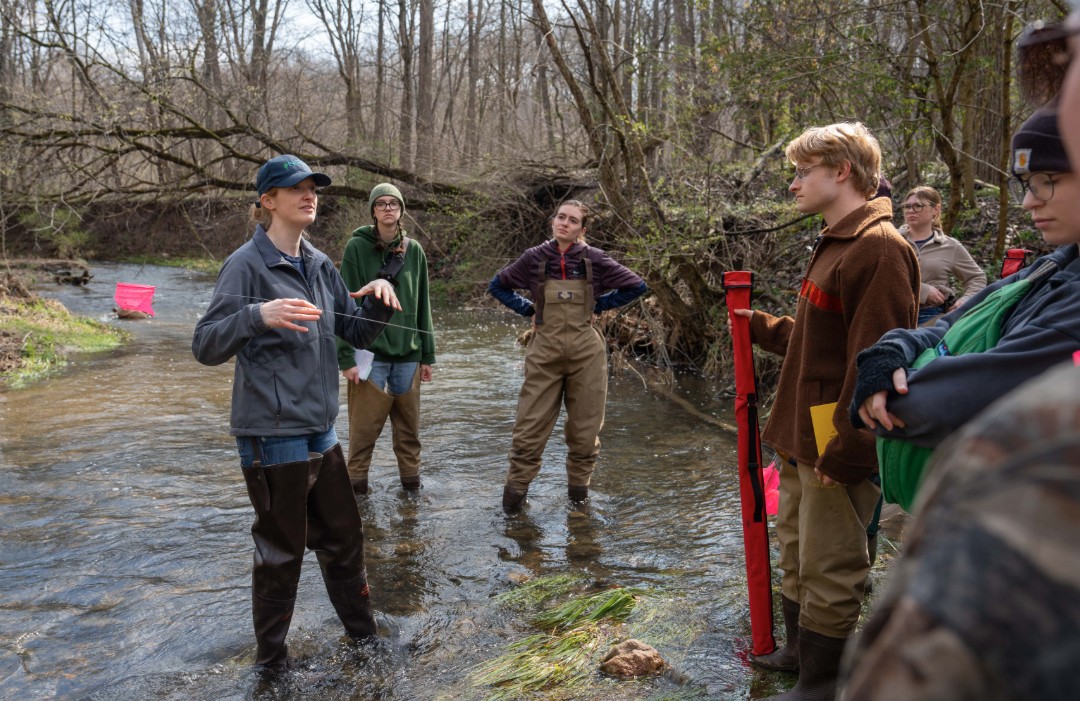
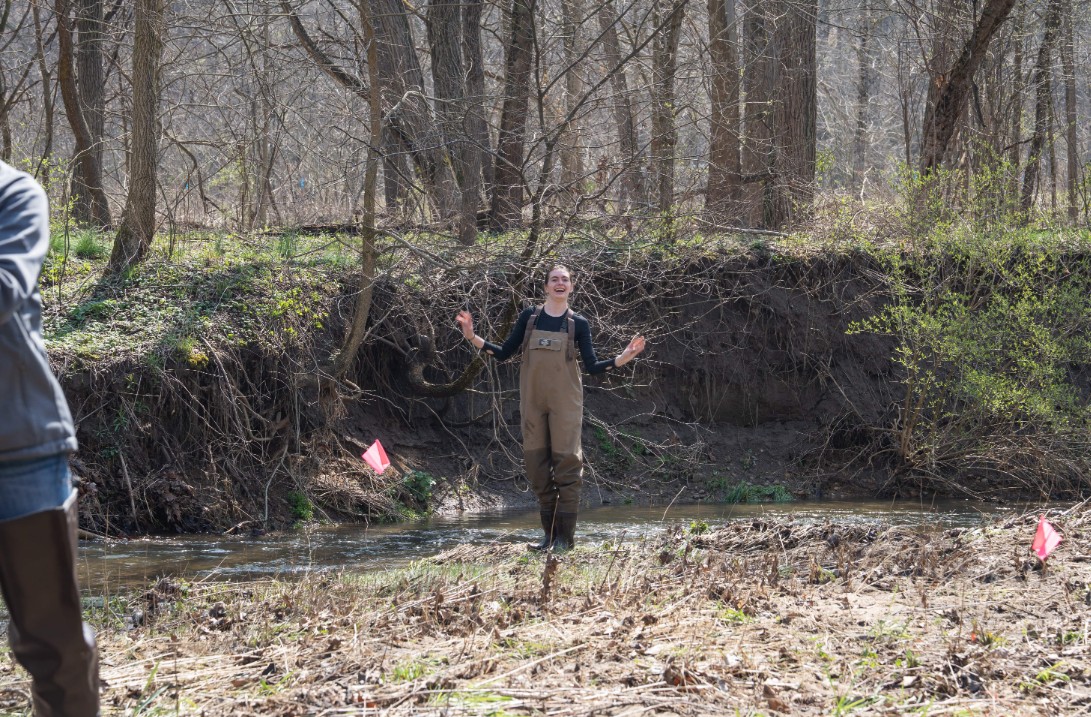
Credits: 3
Course Description: This course trains individuals to stop the release or potential releases of hazardous substances. They have a more aggressive role than first responders at the operations level by approaching the point of the release to plug, patch, or otherwise stop it or manage offensive operations. This course satisfies the OSHA standards for completion of the 40-hour Hazardous Waste Operator/Emergency Response Technician certification, 29CFR1910.120. Topics covered include implementing an employer's emergency response plan; classification and identification of unknown materials using field survey instruments; functioning within the Incident Command System; specialized chemical protective equipment; hazard and risk assessment techniques; advanced product control operations; decontamination procedures; proper termination procedures; and basic chemical and toxicological terminology.
Semester(s) Offered: Spring
Typically Taken: Spring of Senior Year
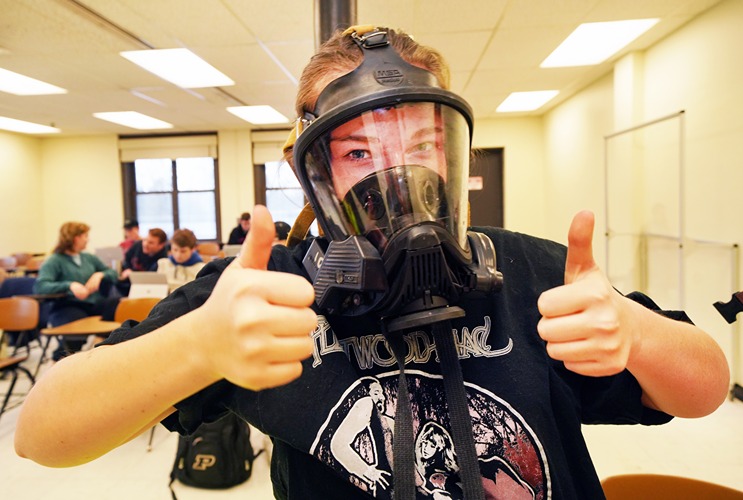
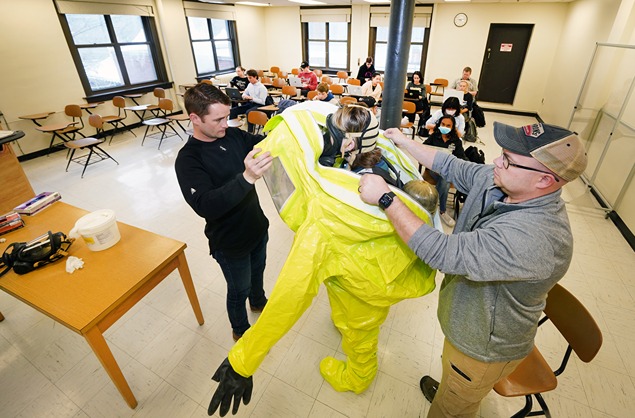
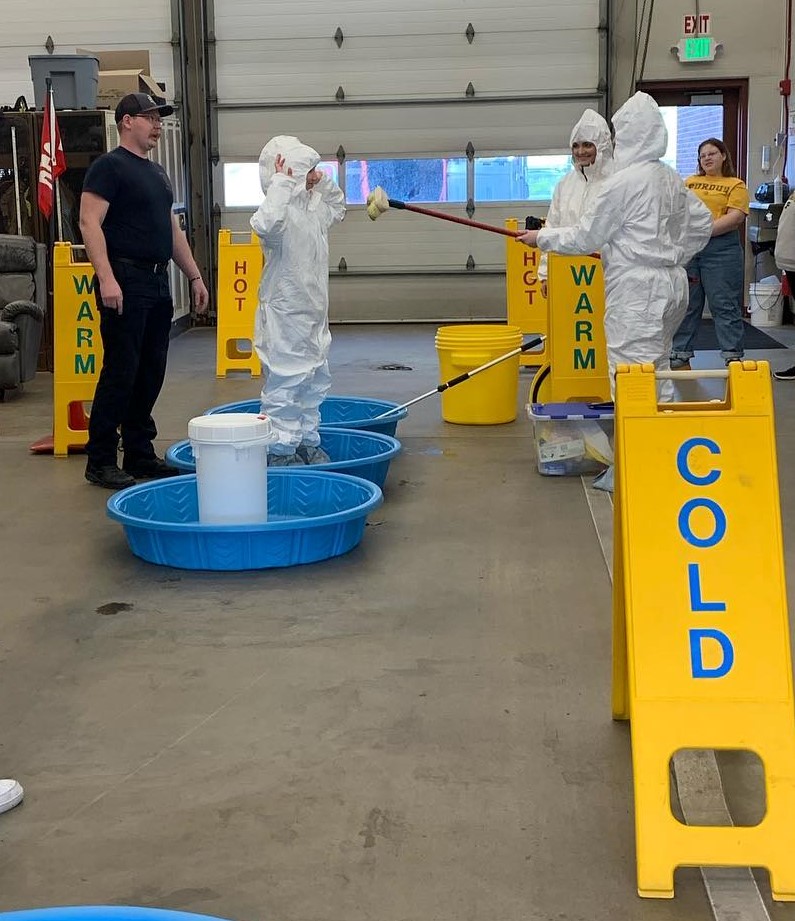
Credits: 1
Course Description: All NRES students are required to either complete an internship or a research experience prior to taking this required course. This course is intended to provide an opportunity for students to reflect on their internship or research experience, interact with students with similar experiences, and report on that experience, as part of their preparation for a career in the environmental science field. Learning outcomes include to compare and contrast different professional settings and work environments through the internship and research experience; to reflect on the experience and how it informs career goals; to analyze and interpret simple data, appropriate to the professional setting; and to communicate effectively using written and oral media. You can see examples of internship posters below and research posters here.
Semester(s) Offered: Fall
Typically Taken: Fall of Junior or Senior Year
Credits: 2
Course Description: This course is part of the NRES capstone experience and helps students examine contemporary environmental issues through the diverse disciplinary lenses they have been exposed to through their NRES coursework. NRES students are put into groups and paired with a community partner to work on a real-life project. You can see examples from 2023 here and from 2024 here.
Semester(s) Offered: Spring
Typically Taken: Spring of Senior Year
